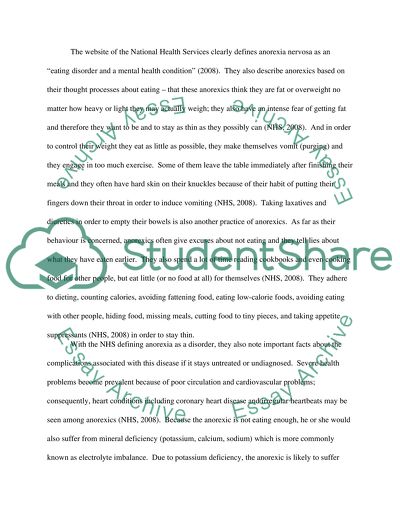Cite this document
(“Anorexia Nervosa and Pro-anorexia Nervosa Websites Essay”, n.d.)
Anorexia Nervosa and Pro-anorexia Nervosa Websites Essay. Retrieved from https://studentshare.org/health-sciences-medicine/1562111-assignment-3-nurs438-analysis-of-web-sites
Anorexia Nervosa and Pro-anorexia Nervosa Websites Essay. Retrieved from https://studentshare.org/health-sciences-medicine/1562111-assignment-3-nurs438-analysis-of-web-sites
(Anorexia Nervosa and Pro-Anorexia Nervosa Websites Essay)
Anorexia Nervosa and Pro-Anorexia Nervosa Websites Essay. https://studentshare.org/health-sciences-medicine/1562111-assignment-3-nurs438-analysis-of-web-sites.
Anorexia Nervosa and Pro-Anorexia Nervosa Websites Essay. https://studentshare.org/health-sciences-medicine/1562111-assignment-3-nurs438-analysis-of-web-sites.
“Anorexia Nervosa and Pro-Anorexia Nervosa Websites Essay”, n.d. https://studentshare.org/health-sciences-medicine/1562111-assignment-3-nurs438-analysis-of-web-sites.


